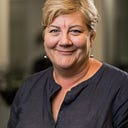Regional Regeneration with Young People
Many of the children and young people living in the 2015 bushfire affected communities of Pinery and Sampson Flat, and more recently affected communities of Cudlee Creek, Port Lincoln, Yorktown, and Kangaroo Island, have been part of a wide ranging series of conversations I have had about their future hopes and dreams, sense of connection, and trust in institutions and services.
Although my conversations with these South Australian children and young people were not specifically about bushfires, they were about subjects they told me were important to them. They provide us, therefore, with a unique and relevant insight into what is front of mind for children and young people in their regional communities.
I heard that South Australia’s regional children and young people are rarely, if ever, invited to share their ideas and opinions on what could be done to make things better. They have many ideas for positive, affordable change that could bring about improvements for themselves and those around them. Their proposals are not outrageous or unreasonable.
These ideas for change, if supported, would make young people feel much better about their lives. It would provide them with the incentive they need to remain in their local communities, confident they can build a future within them. These ideas are the subject of a recent report I’ve published titled Regenerating Our Regions.*
Many young people told me they experience inner conflict between the personal commitment they’ve made to staying in their community, and the concerns they have individually about whether there is any real future for them within it.
They want their regions to thrive, not just survive, and they want opportunities to help contribute to building a community they can be proud of — not one happy to remain as is, resigned to an attitude of more of the same.
I have found in my conversations with children and young people that they’re greatly influenced by what they hear being said around them. The social media banter and the general chit chat they pick up on, plays out in the things they choose to tell me. This includes the pressure on their parents, teachers and community leaders and the worries they face; worries such as their loss of jobs, property, livelihoods, wildlife and natural ecosystems — all of which were occurring before the devastating bushfires came through or COVID 19 reached pandemic scale.
Before the bushfires and the coronavirus too, children and young people in South Australia’s regional communities were seeking ways to participate more. Given the essential recovery programs that will be required now, following the recent bushfire devastation, and the response that must be made if we are to limit coronavirus, there is no better time to invite young people ‘into the tent’. They will bring with them their ideas, opinions, and their youthful energy to help design and implement strategies that will benefit the broader community as well as themselves, to help aid its recovery.
It is critical bushfire affected communities encourage regional young people to become actively involved in their recovery effort in the same way that it is critical that young people are involved in halting the spread of COVID19.
Communities need to support their young people to have a voice. They need to invite them to participate, either as a group or as individuals — welcoming and acknowledging their presence at community meetings and informal gatherings (however these may now be held) and allowing them to contribute to discussions without fear of being criticised, ignored, or worse dismissed.
Regional regeneration requires bold action that embeds regional young people as core stakeholders. It needs engagement that is more inclusive, sustainable and future focussed. Young people need to hear firsthand that their contribution is valued and that they are considered vital to the overall effort being made to build a positive future for the community — not be seen as passive bystanders who have no reason to have input into how recovery or future building and proofing will be undertaken.
The reality is young people will have these conversations amongst themselves anyway. If they have them with adults they will be seen and heard — not forced into isolation and prevented from contributing wholeheartedly in the positive ways they want to. Isolating young people from the conversation at this time will amplify their frustration, and drive a wedge between them and the broader community.
*Read Regenerating Our Regions — Increasing participation of young people in rural South Australia here
